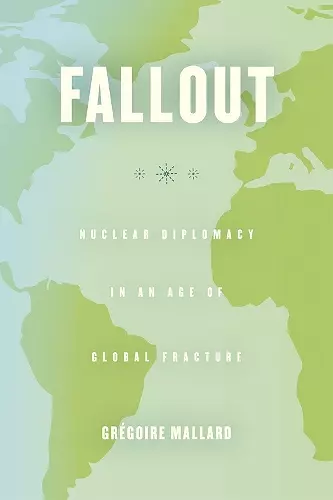Fallout
Nuclear Diplomacy in an Age of Global Fracture
Format:Hardback
Publisher:The University of Chicago Press
Published:11th Nov '14
Currently unavailable, and unfortunately no date known when it will be back

Many Baby Boomers still recall crouching under their grade-school desks in frequent bomb drills during the Cuban Missile Crisis - a clear representation of how terrified the United States was of nuclear war. Thus far, we have succeeded in preventing such catastrophe, and this is partly due to the various treaties signed in the 1960s forswearing the use of nuclear technology for military purposes. In Fallout, Gregoire Mallard seeks to understand why some nations agreed to these limitations of their sovereign will - and why others decidedly did not. He builds his investigation around the 1968 signing of the Nuclear Nonproliferation Treaty (NPT), which, though binding in nature, wasn't adhered to consistently by all signatory nations. Mallard looks at Europe's observance of treaty rules in contrast to the three holdouts in the global nonproliferation regime: Israel, India, and Pakistan. He seeks to find reasons for these discrepancies, and makes the compelling case that who wrote the treaty and how the rules were written - whether transparently, ambiguously, or opaquely - had major significance in how the rules were interpreted and whether they were then followed or dismissed as regimes changed. In honing in on this important piece of the story, Mallard not only provides a new perspective on our diplomatic history, but, more significantly, draws important conclusions about potential conditions that could facilitate the inclusion of the remaining NPT holdouts. Fallout is an important and timely book sure to be of interest to policy makers, activists, and concerned citizens alike.
"This brilliant book should be of wide interest to students of government, politics, sociology, and law, as well as to high-level policy makers and the general public concerned with nuclear nonproliferation and problems of global governance. Mallard draws deftly on a wealth of primary and secondary sources to provide us with a lucid and captivating account of the centrality of 'opacity' as a discursive strategy in transnational affairs." (Daniel Halberstam, University of Michigan)"
ISBN: 9780226157894
Dimensions: 24mm x 17mm x 3mm
Weight: 652g
384 pages